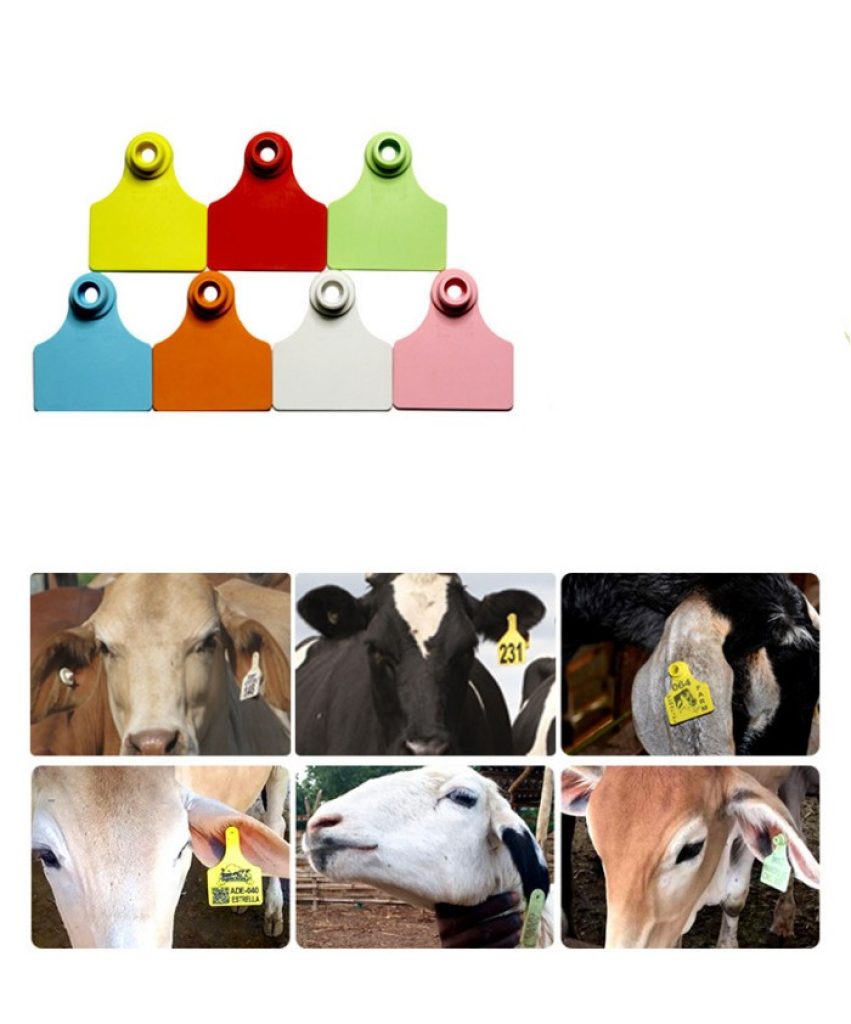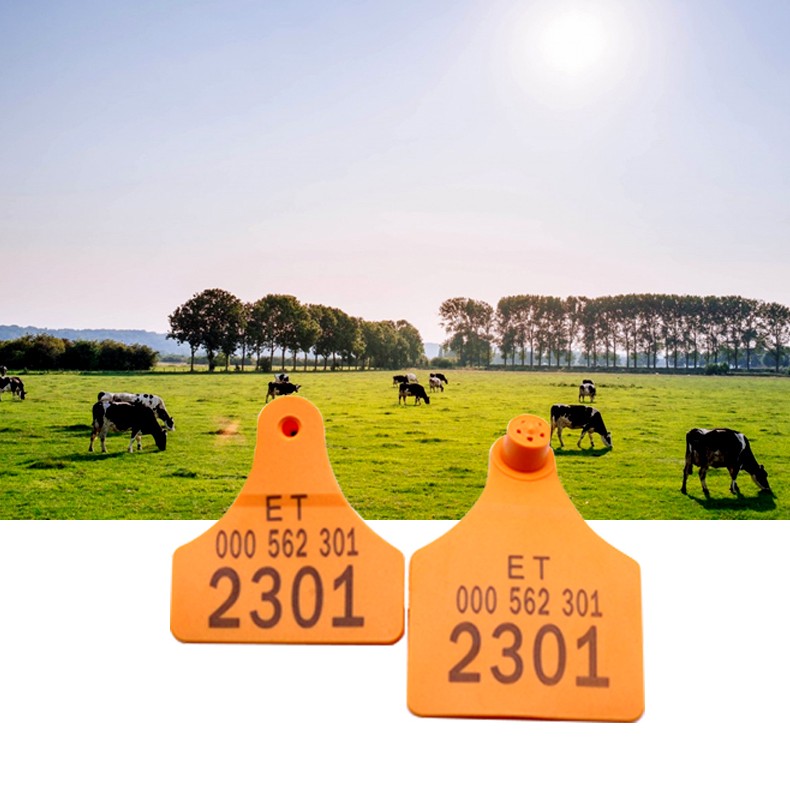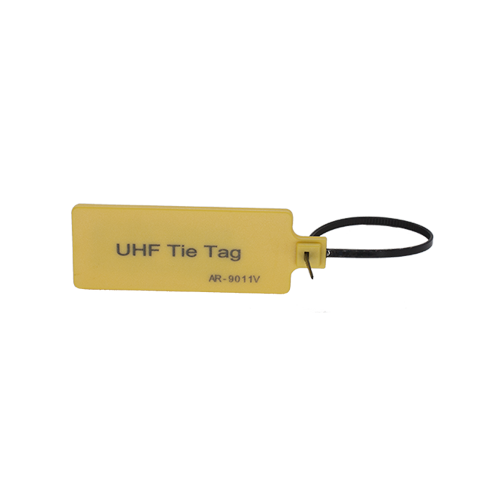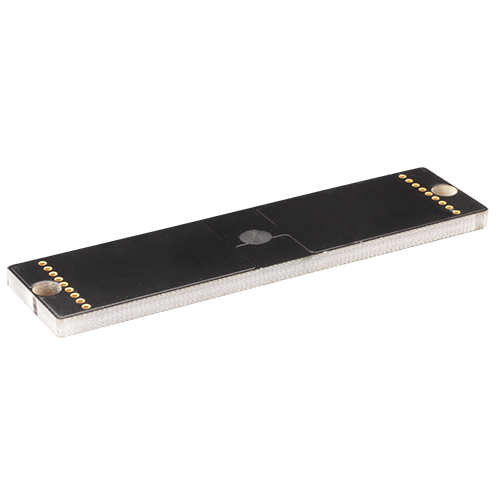RFID Tags for goats
RFID tags for goats provide an efficient and accurate means of tracking, managing, and monitoring individual animals within a herd. They have become an invaluable tool for modern goat farming, helping farmers make data-driven decisions to improve herd health, productivity, and profitability.
RFID tags for goats are similar to RFID tags for other livestock, such as cattle and sheep. These tags are small electronic devices that are placed in the ear of the goat to provide a unique identification number that can be read using an RFID reader. The tags can be either passive or active, with passive tags being the most common.
Passive RFID tags rely on radio waves from an RFID reader to power the tag and transmit the identification number. When the reader is within range of the tag, it sends a signal that causes the tag to transmit its identification number. Active RFID tags, on the other hand, have a battery that powers the tag and allows it to transmit its identification number at all times.

RFID tags for goats are used for various purposes, including herd management, tracking, and disease control. They allow farmers to easily identify individual goats, track their movement and behavior, monitor their health status, and manage their breeding and production. In addition, RFID tags can be used to record important information about the goat, such as its age, gender, breed, and medical history.
RFID tags for goats are an essential tool for effective livestock management, providing farmers with the ability to track and monitor their goats’ health, productivity, and well-being.
RFID tags for goats are electronic identification devices designed for tracking, managing, and monitoring individual goats within a herd. These tags use radio frequency identification (RFID) technology to provide a unique identification number for each goat. Here are some key points about RFID tags for goats:
1. Unique Identification: Each RFID tag for a goat contains a unique identification number. This number is essential for distinguishing one goat from another and tracking its movements and data.
2. Easy Application: RFID tags can be attached to a goat’s ear, collar, or leg, depending on the design and application. Common options include ear tags and leg bands.
3. RFID Technology: RFID tags work by using radio waves to communicate with RFID readers. When an RFID reader is brought close to the tag, it can read the unique ID number and other information stored on the tag.
4. Livestock Management: RFID tags for goats are instrumental in modern livestock management. They help farmers and ranchers keep detailed records of each goat, including its breed, age, health history, and other relevant data.
5. Disease Control: In the event of a disease outbreak, RFID tags can assist in tracing the movement of goats, identifying potentially infected animals, and implementing containment measures to prevent the spread of diseases.
6. Breeding and Reproduction: RFID tags play a vital role in goat breeding programs. By tracking individual goats and their reproductive history, farmers can make informed decisions about breeding to improve the herd’s genetics and productivity.
7. Nutrition and Feeding: RFID tags can be used to monitor the feeding habits of individual goats. This information helps ensure that each goat receives the appropriate diet and quantity of feed.
8. Regulatory Compliance: In some regions, regulatory authorities require the use of RFID tags for goats as part of disease control, food safety, and supply chain traceability measures.
9. Inventory Management: RFID tags also simplify inventory management in large herds of goats. Farmers can quickly and accurately count their animals, making it easier to keep track of stock levels.
RFID tags for goats provide an efficient and accurate means of tracking, managing, and monitoring individual animals within a herd. They have become an invaluable tool for modern goat farming, helping farmers make data-driven decisions to improve herd health, productivity, and profitability.
Product Name: RFID tags for goats
Material: Top-Quality TPU (Thermoplastic Polyurethane)
Color: Yellow,Green,White(Colors can be customized)
Specifications:
- Female Tag: 100*76mm
- Male Tag: 30*23mm
Standard: ISO 18000-6C
Working Temperature: -20°C to 70°C
Working Frequency: 860-960 MHz
Chips: Alien H3
Working Distance: 1-6 meters (Related to card reader equipment)
Application: Suitable for goats, sheep, and other animals
Certificates: ISO9001:2018, SGS, ROHS
Additional Information
- The UHF Sheep Electronic Ear Tag is a passive RFID tag that uses the UHF frequency band.
- It is designed to be used on sheep and other livestock to track and identify them.
- The tag is made of durable TPU material and is IP67 rated, making it waterproof and dustproof.
- The tag has a read range of up to 6 meters, depending on the RFID reader equipment being used.
- The tag can be used in a variety of applications, including animal tracking, herd management, and disease control.
Benefits of using the UHF Sheep Electronic Ear Tag:
- Improved animal tracking and management
- Reduced labor costs
- Increased efficiency
- Reduced losses
- Improved animal welfare
- Are RFID tags safe for goats?
- RFID tags are considered safe for goats, as they are designed to cause minimal discomfort and are widely used in the livestock industry.
- Can RFID tags be reused for multiple goats?
- Some RFID tags are reusable, but it’s essential to follow the manufacturer’s guidelines for reusing them.
- Do RFID tags require a power source?
- No, RFID tags are passive devices that do not require a power source. They are powered by the radio waves emitted by the reader.
- How do RFID tags benefit goat health monitoring?
- RFID tags store medical records, making it easier to track the health history of individual goats and detect any health issues early.
- What is the lifespan of an RFID tag for goats?
- The lifespan of an RFID tag varies depending on the type and usage but can last several years in most cases.




